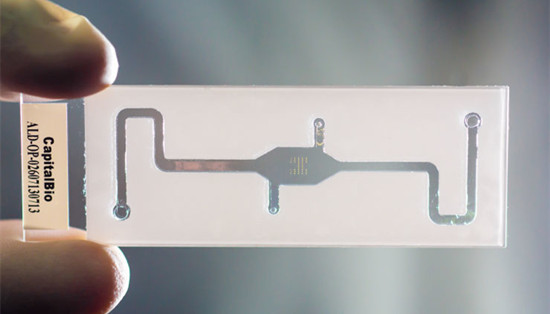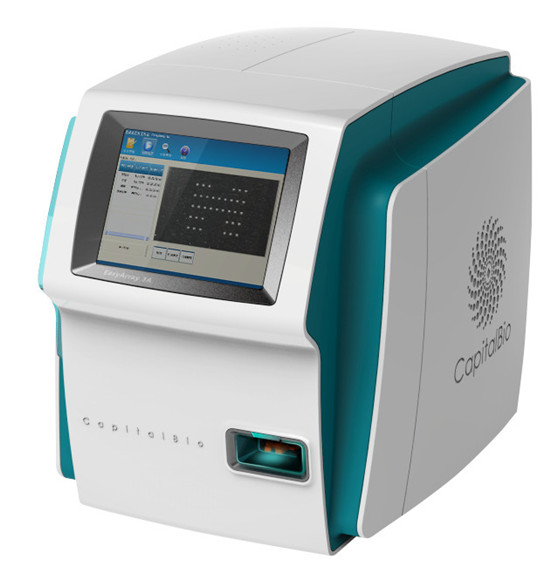CapitalBio-University of Miami deafness gene chip research published in PLOS One
2017-03-20

CapitalBio's microfluidic gene array biochip can be used to detect genes related hereditary deafness in people of European ancestry.
CapitalBio Corporation, a Tsinghua Holdings subsidiary, has developed a biochip capable of detecting the genetic sequences that cause hereditary deafness in people of European descent.
The company published a paper detailing the test results for the new chip in the peer-reviewed academic journal PLOS One, which showed that the new technology offers a reliable and cost-effective alternative to current screening methods. This is the first paper providing tested data on a biochip of this kind ever to be published.
The new DNA screening method, the fruit of a joint project between CapitalBio and the University of Miami, offers the possibility of improving the detection of hereditary deafness among millions of people of European ancestry.

The automatic biochip reaction reader developed by CapitalBio
According to WHO statistics, there are 35 million people with hearing impairment in Europe and the US, and more than half these people suffer from hereditary deafness.
Established in 2000, CapitalBio was one of the first companies to invest in biochip research and development.
In 2014, CapitalBio and the University of Miami developed biochips that can detect nine loci of five genes related to hereditary deafness. In 2016, they successfully developed a deafness genetic screening system for people of European ancestry.

 Facebook
Facebook WeiXin
WeiXin CONTACT US
CONTACT US










 Tsinghua Holdings works hard for better ecological environment
Tsinghua Holdings works hard for better ecological environment